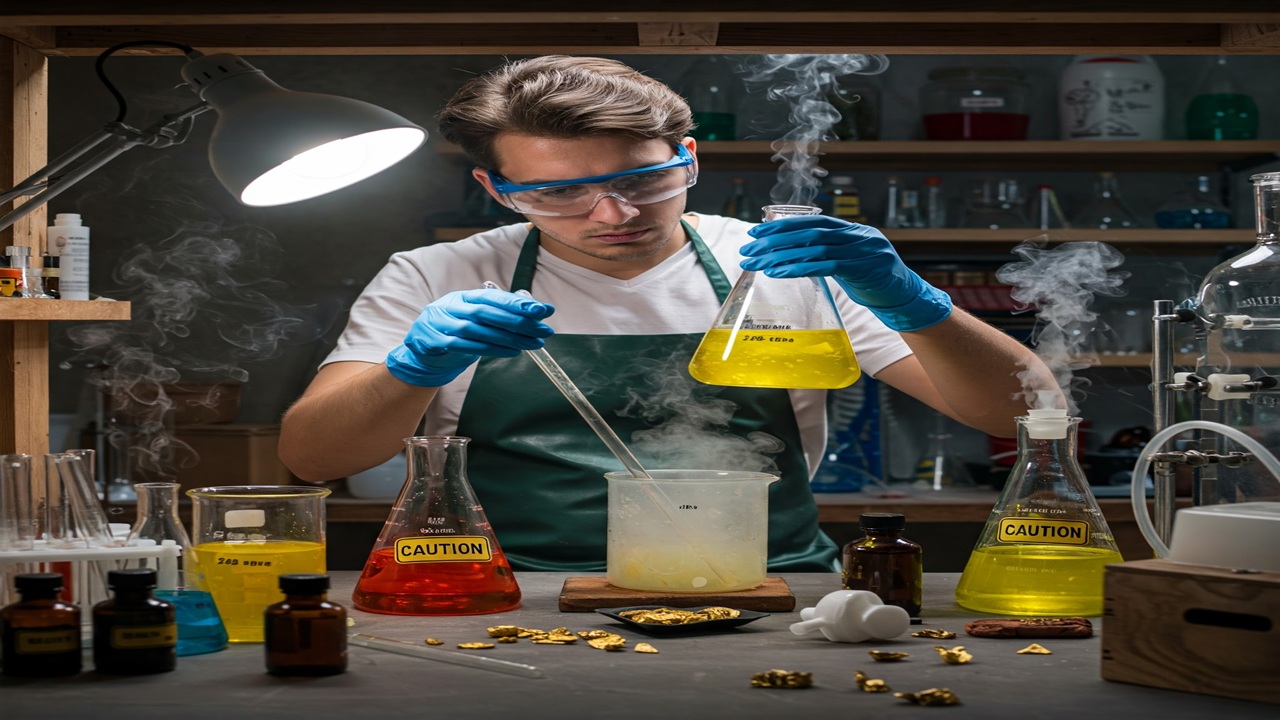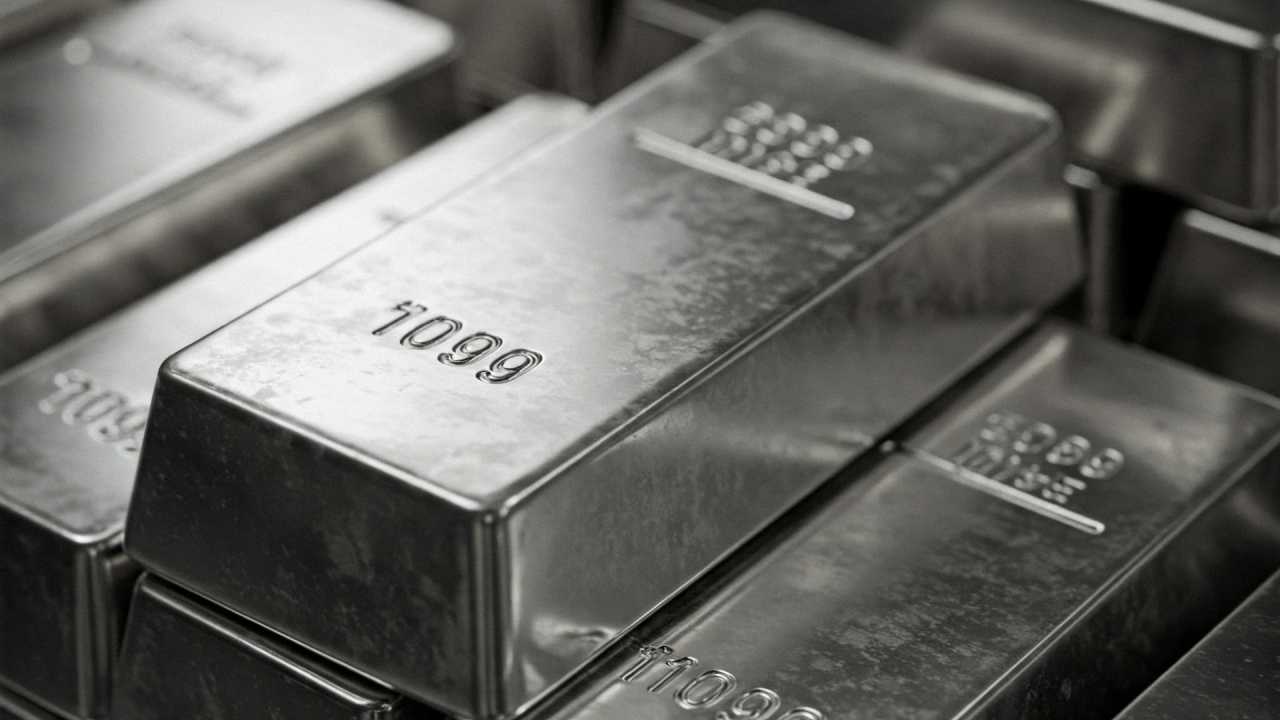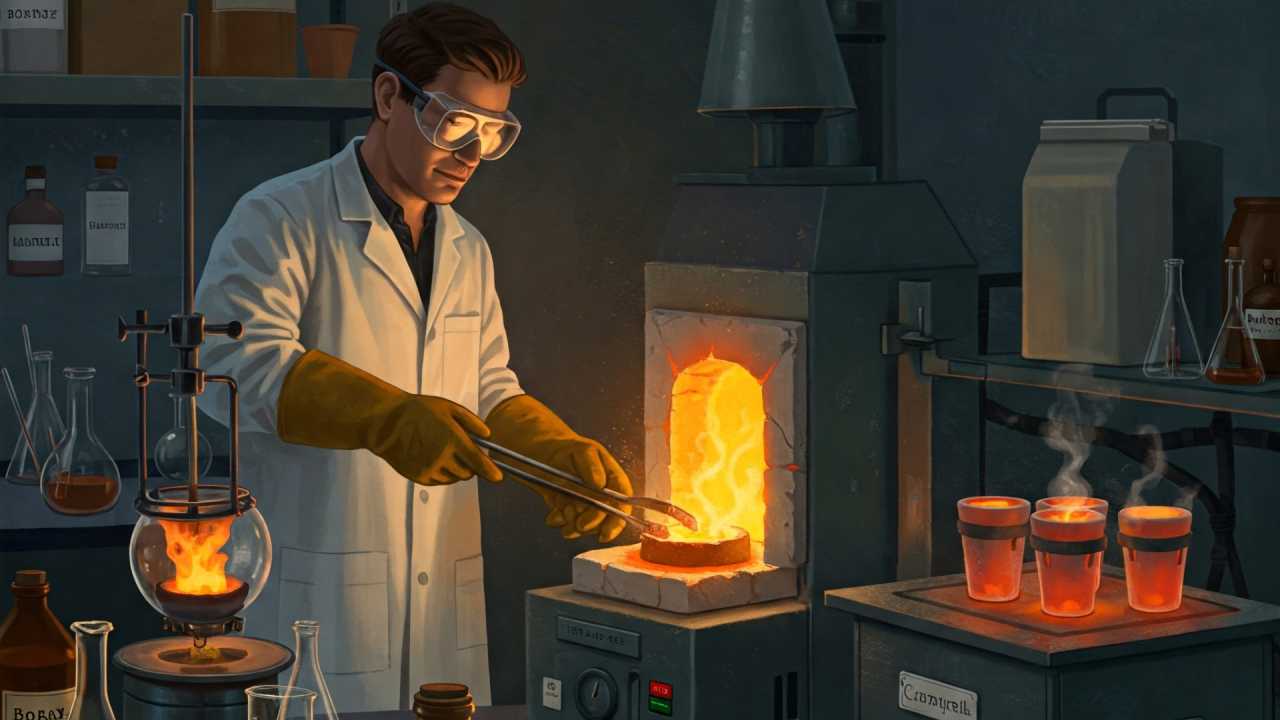Refining Gold Yourself: Is It Safe & Worth It?
The allure of pure gold is undeniable, and the idea of refining it yourself can be quite tempting. Gold has fascinated humanity for millennia, its shimmering beauty, rarity, and stability making it a symbol of wealth and luxury.
Throughout history, individuals and civilizations have sought to possess, shape, and refine gold into pure forms for various uses, from currency to ornamentation.
With the advent of modern technologies, the process of refining gold has become more sophisticated, but also more hazardous and regulated.
While the idea of refining your own gold at home might seem enticing, it’s a process fraught with challenges, dangers, and legal complexities. Here’s a comprehensive look at what’s involved in gold refining.
Understanding Gold Refining
Gold refining is the process of removing impurities from gold to increase its purity. Gold naturally occurs in its raw form in ores that often contain other metals, including silver, copper, iron, and other base metals.
These impurities must be removed to produce high-quality, refined gold. Gold refining is essential for several key industries, and it allows manufacturers to create products that meet precise specifications for purity.
Key Applications of Refined Gold
- Jewelry: Pure gold, known as 24 karat gold, is highly valued in the jewelry industry. However, pure gold is relatively soft and malleable, making it unsuitable for many types of jewelry that need to withstand daily wear and tear. As a result, pure gold is often alloyed with other metals like copper, silver, or palladium to improve its durability. Refining gold allows jewelers to control the purity of their materials, ensuring the right balance of softness and strength for different designs.
- Electronics: Gold is widely used in the electronics industry due to its excellent electrical conductivity, resistance to corrosion, and ease of molding into fine wires and connections. Refined gold is used in components like connectors, circuit boards, and microchips. The purity of gold is critical in these applications, as even small impurities can affect performance.
- Investment: Gold is a popular investment vehicle, and the value of gold bullion and coins is directly tied to their purity. Investors typically look for gold with high purity (often 99.99% or better), which is why gold refining is an important process for those buying and selling gold as a commodity. Refined gold is often minted into coins or bars, which serve as a store of value.
Methods of Gold Refining
There are several methods for refining gold, each with its unique processes and requirements. Understanding these methods is crucial for anyone considering attempting gold refining on their own.
1. Aqua Regia Process
Aqua regia is a classic method for refining gold, dating back centuries. The term “aqua regia,” which translates to “royal water” in Latin, refers to a potent mixture of hydrochloric acid (HCl) and nitric acid (HNO3) that is capable of dissolving gold. The process involves dissolving gold in this acid mixture, producing a solution of gold chloride. The gold is then precipitated out of the solution by adding a reducing agent like sodium metabisulfite, leaving behind pure gold.
While effective, the aqua regia process is fraught with dangers:
- Corrosive and Toxic: Both hydrochloric and nitric acid are highly corrosive and toxic. Improper handling of these chemicals can cause severe chemical burns, respiratory issues, and even death if not handled correctly.
- Hazardous Fumes: The reaction produces toxic fumes, including nitrogen dioxide, which can cause lung damage and other health problems if inhaled.
- Waste Disposal: The chemicals used in this process are hazardous to the environment, and improper disposal of waste materials can lead to significant environmental damage.
2. Electrolytic Refining
Electrolytic refining is a more modern and less hazardous technique for purifying gold. This method uses an electric current to separate gold from its impurities.
In electrolytic refining, impure gold is used as the anode, and a pure gold cathode is placed in an electrolyte solution, typically made of gold chloride or cyanide solution.
When an electrical current is passed through the system, the gold in the anode dissolves and is deposited onto the cathode as pure gold. This method can achieve high purity levels, often greater than 99.99%.
While electrolytic refining is less dangerous than aqua regia, it still requires careful handling of chemicals and electrical equipment. The process is typically carried out in a controlled industrial setting, where safety protocols can be followed.
3. Cupellation
Cupellation is one of the oldest methods of refining gold, and it is particularly useful for refining gold alloys that contain silver.
In this process, gold is heated with lead in a special ceramic crucible. The lead reacts with the impurities, including silver, and forms lead oxide, which is absorbed into the crucible.
This leaves behind pure gold. Cupellation is typically used in assays and small-scale refining operations.
Though relatively simple, this method can be dangerous due to the high temperatures involved and the toxic lead fumes that are released. Proper ventilation and safety equipment are essential when using this method.
4. Chemical Methods
In addition to the main methods mentioned above, there are other chemical methods for refining gold, which may involve the use of various acids, cyanide solutions, or other chemicals.
These methods are typically used for industrial-scale operations or specific gold-bearing ores. They can be highly effective, but like aqua regia and electrolytic refining, they come with risks related to toxicity and environmental concerns.
The Dangers of Home Gold Refining
While it may seem appealing to refine gold on your own at home, this is a dangerous and complex endeavor that requires proper training and equipment. Refining gold at home can expose you to various hazards:
1. Hazardous Chemicals
The chemicals involved in gold refining are highly dangerous. Nitric acid, hydrochloric acid, aqua regia, cyanide, and other chemicals are all toxic, corrosive, and volatile.
Inhaling fumes from these chemicals can cause severe lung damage, and improper handling can lead to chemical burns or even death.
The risks of exposure to hazardous chemicals are significant, and without the proper safety equipment and training, it’s easy to make mistakes that could be harmful or fatal.
2. Safety Equipment
Gold refining requires specialized safety equipment to protect against the hazardous chemicals and fumes produced during the process. Necessary safety gear includes:
- Acid-resistant gloves and aprons to protect the skin from burns.
- Eye protection, such as safety goggles or face shields, to protect against splashes and fumes.
- A respirator to avoid inhaling toxic fumes, particularly when working with aqua regia or cyanide solutions.
- A well-ventilated workspace to ensure that fumes are quickly dispersed and don’t build up to dangerous levels.
Without the proper safety equipment, refining gold at home can lead to serious injury or even death.
3. Environmental Concerns
Improper disposal of chemicals used in gold refining can cause significant harm to the environment. The toxic chemicals can contaminate soil and water, posing risks to wildlife and human health.
Additionally, the fumes produced during gold refining can contribute to air pollution. Safe disposal methods are essential, but they are often expensive and require specialized knowledge.
4. Legal Implications
Gold refining is regulated by local and federal authorities, and there are laws governing the purchase, possession, and disposal of the chemicals used in the process.
In many places, the use of certain chemicals is tightly controlled due to their potential misuse in illegal activities, such as the production of illegal drugs.
Additionally, there may be local zoning laws or environmental regulations that prohibit home-based refining operations. It is crucial to research and comply with all relevant regulations before attempting any form of gold refining.
Is Home Gold Refining Worth It?
For most individuals, the risks and complexities of home gold refining outweigh the potential benefits. Refining gold at home is not only hazardous but also expensive and time-consuming.
1. Cost
The initial cost of purchasing the necessary chemicals, equipment, and safety gear can be substantial. Additionally, the process of refining gold is not guaranteed to be successful, and there’s a significant risk of wasting materials due to errors or improper procedures.
2. Expertise
Gold refining requires a great deal of specialized knowledge and skill. Without proper training, it is difficult to achieve consistent, safe, and high-quality results.
Even experienced professionals can encounter issues during the refining process, making it a challenging endeavor for a beginner.
3. Alternatives
For those interested in refining gold, there are several alternatives to home-based refining:
- Professional Gold Refineries: These facilities have the expertise, equipment, and safety protocols necessary to refine gold efficiently and safely. They can achieve high purity levels and are far more cost-effective than attempting the process at home.
- Selling Scrap Gold: If you’re looking to obtain refined gold, selling scrap gold to reputable dealers or refineries is a safer and more convenient option. These dealers can refine the gold for you, ensuring you get the best value for your materials.
Key Considerations
If you are determined to attempt refining gold at home, there are several crucial considerations:
- Ventilation: Adequate ventilation is critical. Many gold refining methods produce noxious fumes that can be harmful if inhaled.
- Chemical Handling: Extreme caution must be used when handling the chemicals involved, and appropriate safety measures should always be followed.
- Waste Disposal: Proper disposal of chemical waste is essential to prevent environmental contamination.
- Safety First: Prioritize safety above all else. Never attempt to refine gold without the proper safety equipment and knowledge.
Final Thoughts
While the concept of refining your own gold might seem appealing, it’s a task that should be approached with extreme caution.
The dangers associated with handling hazardous chemicals, the complexities of the refining process, and the potential legal and environmental issues make it a risky endeavor for the average person.
For most individuals, gold refining is best left to trained professionals who have the necessary skills, experience, and equipment to carry out the process safely and effectively.









